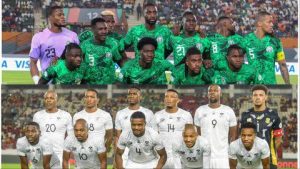The Independent National Electoral Commission (INEC) has come out to give reasons why electorates with temporary voters cards can not vote on election day.
The commission said registered voters who fail to collect their Permanent Voters Cards (PVCs) before the deadline would not be allowed to vote on election day because the PVC is critical to its planned accreditation process.

The electoral umpire as learnt by Naija News told the Federal High Court sitting in Abuja on Monday that unlike in previous elections where eligible electorates who had issues with accreditation were allowed to vote after filling the Incident Form, electorates at the forthcoming election and others would only be allowed to vote after their PVCs have been duly authenticated by the Bimodal Voter Accreditation System (BVAS).
Naija News reports that INEC through its legal team led by Abdulaziz Sani (SAN) appealed to the court to dismiss a suit seeking to compel the commission to allow those with temporary voters card or proof of registration to vote.
The commission as gathered by this platform was responding to a suit marked: FHC/ABJ/CS/2348/2022, filled by a non-governmental organisation, under the aegis of the Incorporated Trustees of International Society for Civil Liberties & the Rule of Law, with two other plaintiffs- Emmanuel Chukwuka and Bruno Okeahialam.
The plaintiffs, who alleged INEC was plotting to disenfranchise over 20 million eligible voters in the country, told the court that they filed the suit for themselves and on behalf of registered voters about to be disenfranchised by the commission in the 2023 general elections.
The Plaintiffs, through their lawyer, Max Ozoaka, argued that considering all the attacks on INEC facilities and challenges that are currently trailing the collection of PVCs across the federation, many registered voters would be denied the right to exercise their franchise.
Ozoaka, therefore argued that since the INEC had already issued temporary voters card/registration slips, persons whose PVCs were affected in the said attacks, should in the event that their voters’ cards were not reprinted and collected before the deadline, be allowed to participate in the election.
He told the court that INEC previously disclosed that the BVAS could authenticate electorates by entering of the last six digits of the Voters Identity Number, VIN.
However, in a counter-affidavit filed before the court, INEC challenged the competence of the suit, insisting that the legal action was premature, frivolous and speculative.
INEC accused the plaintiffs of failing to supply the court with particulars of the 29 million persons they claimed may be disenfranchised, giving the reason it extended the period for PVC collection was that so many fresh ones, especially in areas that were attacked, have been reproduced and ready for collection.
The electoral body told the court that it has already extended the time within which PVCs could be collected.







